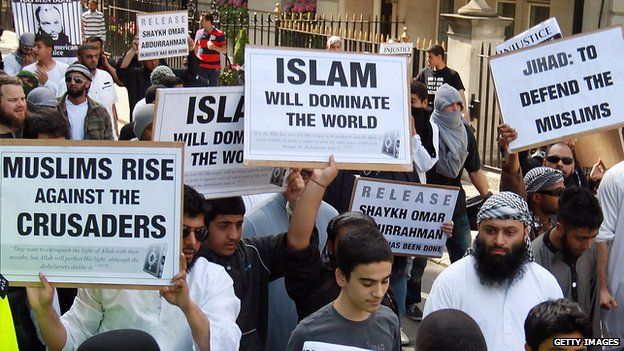The world today does not face its gravest threat from nuclear weapons, climate change, or even economic collapse. The most potent danger to global peace and human coexistence comes from Islamic fundamentalism—a doctrine that refuses to live and let live. The recent Bareilly incident in Uttar Pradesh, where fundamentalists unleashed violence in the name of protecting their so-called faith, once again exposes this menace that India and the world have ignored for too long.
No one has ever objected to Muslims—or followers of any faith—worshipping their God in peace. None can object if a community follows its rituals, builds its mosques, or lives in harmony with others. The problem arises only when religious belief is weaponized, when fanaticism crosses into violence, when mobs decide that others’ lives, faiths, or freedoms must be extinguished to uphold their version of Islam. That line has been crossed far too often, in the West, in Africa, and more so in India.
What emboldens these fundamentalists in India to terrorize Hindus, the very majority whose tolerance gave them space here? Did they forget that Partition itself was demanded on religious grounds? In 1947, Muslims who wanted a homeland for themselves carved out Pakistan. Millions crossed borders amid bloodshed. Yet many chose to stay back in India, promising to co-exist with Hindus, to respect the plural fabric of the land. If they had wanted exclusivity, their natural home was Pakistan. But they chose India—and with that choice came the responsibility of respecting its majority culture and ethos.

Instead, successive Congress governments reduced Hindus to second-class citizens in their own land. For the sake of votes, they allowed appeasement politics to flourish. From shielding violent mobs to mocking Hindu traditions, these governments gave a free pass to those who ridiculed Sanatan Dharma and undermined national unity. This vote-bank politics emboldened radicals to think they were above law and majority sentiment.
But the India of 2025 is no longer the India of Nehru and his dynastic heirs. Those whose very political DNA was a cocktail of Mughal servility and colonial guilt no longer decide India’s fate. Under Prime Minister Narendra Modi, Bharat has begun to awaken. Hindus, long lulled into slumber by false promises of “secularism,” now realize that their survival and cultural integrity cannot be taken for granted. They will not allow their temples to be mocked, their festivals to be curtailed, or their people to be butchered in silence.
This new Bharat has a warning for fundamentalists: violence in the name of religion will no longer be tolerated. The state will not kneel, nor will the majority be silenced. And in Uttar Pradesh, under Chief Minister Yogi Adityanath, this message rings louder than ever. With a population of 27 crores, UP is larger than most countries in the world. If Islamists think they can bully Hindus there, they are mistaken. Yogi’s government has shown time and again that the law will strike back—hard, and without hesitation.
This is not an Indian problem alone. The cancer of Islamic fundamentalism has spread across continents. Many once-Christian nations in Africa and Europe have fallen to the expanding tide of Islamism. The Great Britain that once ruled three-fourths of the world is today inching closer to becoming an Islamic republic. Across the Atlantic, even the mighty United States faces this creeping threat. The arrogance of politicians like Donald Trump, who care more for their business empires than for national security, will not save America from the consequences of unchecked radicalism.
The warning bells must ring loud for India’s internal politics as well. Leaders like Mamata Banerjee in West Bengal, who treats illegal Bangladeshi migrants as her vote bank, are playing with fire. She must realize that sooner rather than later, the electorate of Bengal will pack her off if she continues to ignore Hindu lives. The same message applies to the DMK’s Stalin in Tamil Nadu and his heir, who believe mocking Hindu traditions is a badge of honour. They too must understand—India has changed. Hindus will no longer accept being humiliated in their own land.
The Bareilly incident is not an isolated eruption. It is part of a larger pattern—a refusal by fundamentalists to coexist, a deep-seated belief that only their faith must prevail. The world must recognize Islamic fundamentalism as the single biggest threat to peace and stability. India, scarred by Partition and decades of appeasement, knows this truth better than anyone else.
A word of caution to India’s Muslims: the time of appeasement politics is over. This is not Nehru’s India. This is Bharat—confident, awakened, and unwilling to bend before religious terror. Live in peace, respect the majority’s culture, and co-exist as promised by your forefathers. But if violence is chosen, remember—the majority will not forgive, and the state will not forget.






